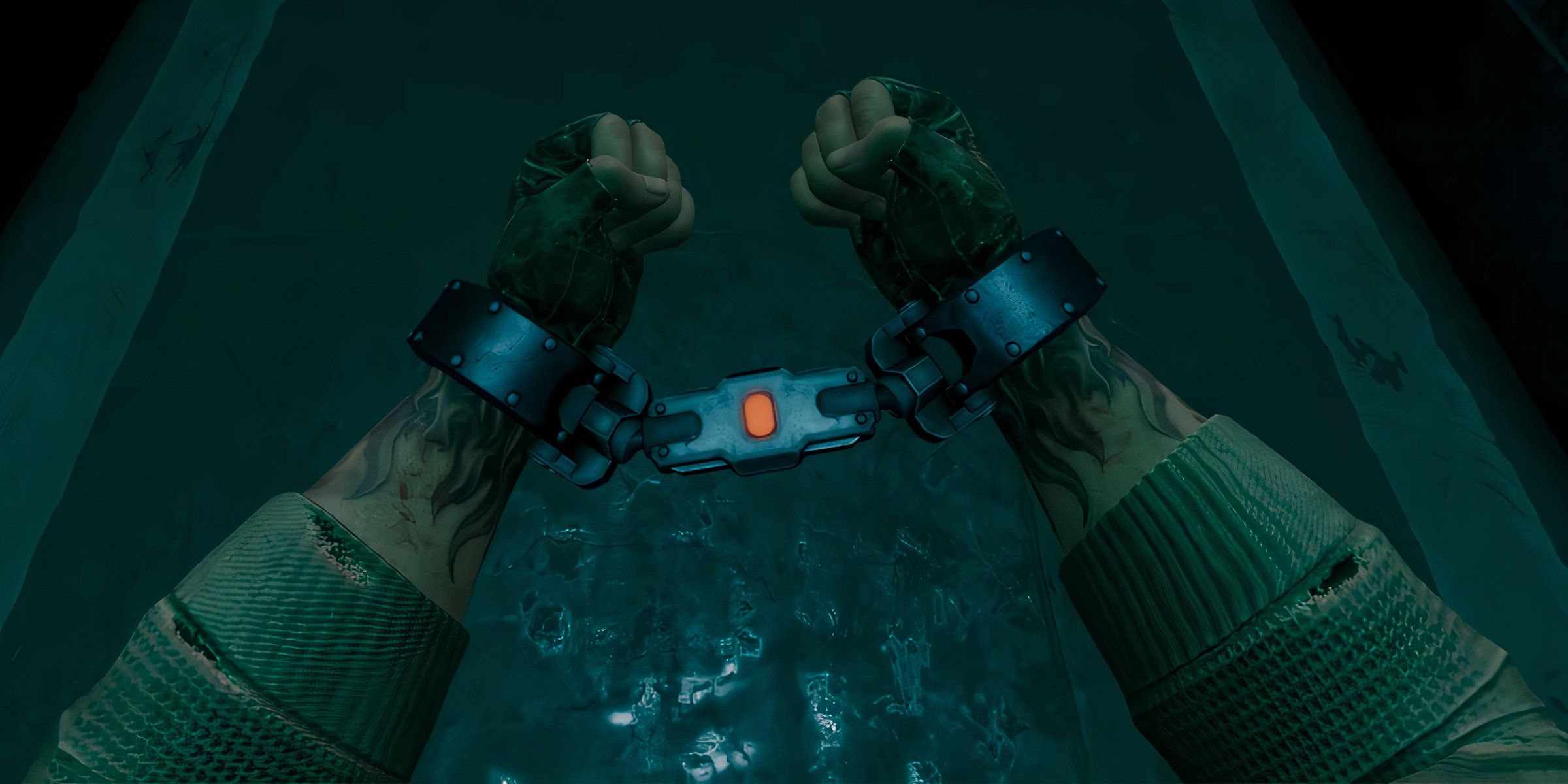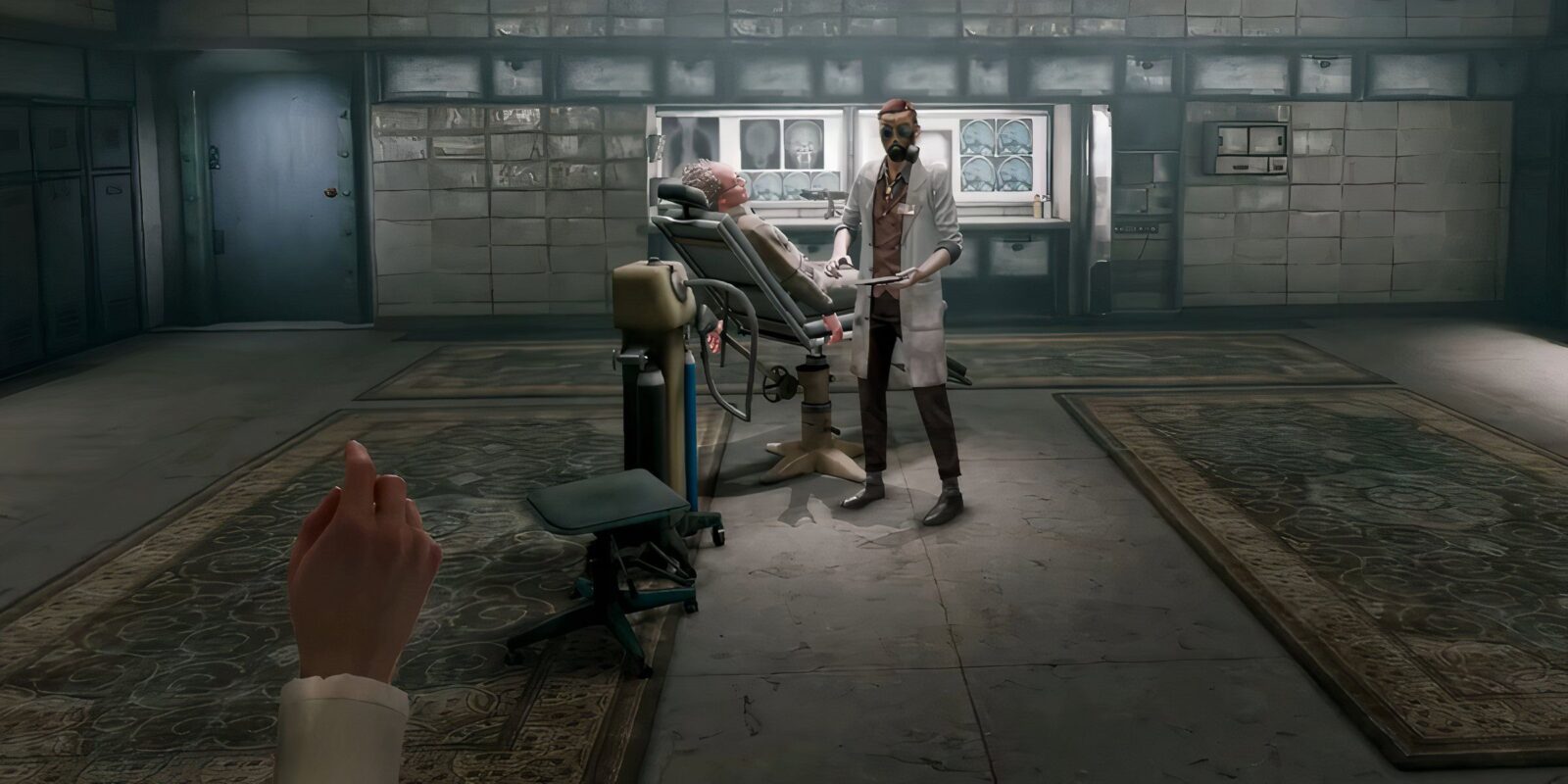Rocksteady’s trilogy of Arkham games never wavered in its depiction of Alfred Pennyworth as a stalwart companion to Bruce Wayne. That’s not to say the Wayne family confidant has never been skeptical of the billionaire orphan’s choices or actions, and yet he is stoic in his dedication to aiding Batman rid Gotham City of crime as much as he is compassionate in his dedication to being a moral rock for Bruce. It wasn’t until Batman: Arkham Origins that Alfred was portrayed as openly critical of Bruce’s ability to be Batman, though this concern arguably came two years too late in the narrative as he had encouraged Bruce up until that point anyhow.
By the end of Origins, Bruce has convinced Alfred of how vital his divisive and theatrical deeds are in a city as corrupt as Gotham, and the rest is history. Interestingly, Batman: Arkham Shadow takes the longest glance at Bruce’s childhood that the Arkhamverse ever has, and without redundantly retelling his origin story it provides wonderful texture and nuance. It’s learned in Batman: Arkham Shadow that Dr. Leslie Thompkins raised Bruce, as Alfred states in his own words, and during the game’s week-long events and intermittent flashbacks it’s clear how much of a positive influence Leslie has had on Bruce’s traumatic life.

Related
Batman: Arkham Shadow’s Malone Possesses a Fun Nod to Origins’ Initiation DLC
Batman: Arkham Shadow thrusts Bruce Wayne in prison sans a cape or cowl, but as Malone he is not without a few tricks up his tattooed sleeves.
Batman: Arkham Shadow’s Dr. Leslie Thompkins is a Sight for Sore Arkhamverse Eyes
Leslie seems as begrudgingly complacent as Alfred was with Bruce Wayne’s nightly activities, but it’s irrevocably suggested that she, too, understands the importance and necessity of his role in Gotham City—“crime prevention,” as Batman puts it. Many characters’ goals in Batman: Arkham Shadow revolve around recidivism in their own complicated, controversial ways, but Leslie is perhaps the most lawful good-leaning as a Youth Crisis Centers caretaker and philanthropist who now works at Blackgate Penitentiary’s infirmary.
Leslie is thrust into the Rats’ ensuing mayhem when she and District Attorney Harvey Dent, who she also had under her wing and was raised alongside Bruce as a foster brother, are targeted at the Solomon Wayne Courthouse. The connection between Bruce and Harvey is then strengthened by Leslie as they both look up to her as a mutual companion and guardian figure, and the conversations that Bruce has with her at Blackgate’s infirmary are enlightening as she transparently and sternly peels back his layers to speak to Bruce, not Irving “Matches” Malone or even Batman.
Leslie’s teachings and mantras may not have been enough to dissuade Bruce from his life-long servitude as the Dark Knight. Still, it’s obvious that it was her benevolence that helped channel his anger into an outlet that could not only be productive and constructive but also a godsend for Gotham City, a home riddled with violent crime and literal super-villains whom the GCPD—chiefly inhabited by people with morals that are questionable at best early in Batman’s career—is incapable of apprehending on its own.
Batman: Arkham Shadow Teases Leslie’s Future Involvement in the Franchise, But at a Cost
Dialogue during Batman: Arkham Shadow’s credits reveals that, on behalf of Bruce, Leslie has looked into the “wayward Rat,” now “former Rat,” whom Batman fought at the Monarch Theatre. Recently, game director Ryan Payton teased more of that storyline to come in the future, and it’ll be interesting to see the extent of Leslie’s involvement regarding Bruce’s interactions with him considering that he already “comes to see [her] for counseling from time to time.”
Of course, Batman: Arkham Shadow being where Leslie makes her debut in the Arkhamverse is not without its questions. This isn’t the first time she was referenced, even if the lone reference is markedly tiny in the macrocosmic scope of the franchise.
Batman: Arkham City
does feature a reference to her eponymous clinic, which could suggest that she’s still around, though she’s notably absent throughout every other
Arkham
game.
An easy presumption to make is that she doesn’t last long in the continuity, but it’s possible that she may merely drift into the background and play her role in rehabilitation while Batman plays his role as Gotham’s caped crusader. Batman: Arkham Shadow establishes that Leslie is a maternal figure for Bruce, instilling her with significance in the continuity henceforth whether any future Arkham games feature her or not.














Leave a Reply